Primary, secondary education in Miami, Florida 2024
This content was developed with active participation of Alison Peacock.
In the process of preparing the material, we referenced the following sources:
- https://www.wfla.com/news/florida/here-are-the-best-high-schools-in-florida/
- https://www.usnews.com/education/best-high-schools/florida/districts/miami-dade-county-public-schools/miami-senior-high-school-4848.
-
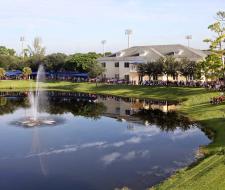 94% of graduates successfully enroll universities, including Ivy League universities
94% of graduates successfully enroll universities, including Ivy League universities USAMiami, FloridaCurrently watching: 7from 28680.00 $ / yearApply with documents
USAMiami, FloridaCurrently watching: 7from 28680.00 $ / yearApply with documents -
 According to information for 2019, an average SAT score made up 1370
According to information for 2019, an average SAT score made up 1370 USAMiami, FloridaCurrently watching: 6from 55000.00 $ / yearApply with documents
USAMiami, FloridaCurrently watching: 6from 55000.00 $ / yearApply with documents -
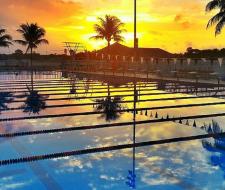 from 62280.00 $ / yearApply with documents
from 62280.00 $ / yearApply with documents -
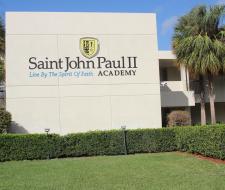 from 62850.00 $ / yearApply with documents
from 62850.00 $ / yearApply with documents -
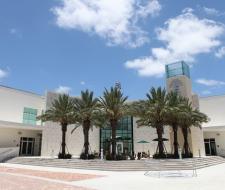 from 24300.00 $ / yearApply with documents
from 24300.00 $ / yearApply with documents -
 from 59000.00 $ / yearApply with documents
from 59000.00 $ / yearApply with documents -
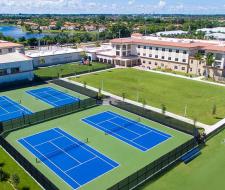
 USAMiami, FloridaCurrently watching: 2from 16000.00 $ / semesterApply with documents
USAMiami, FloridaCurrently watching: 2from 16000.00 $ / semesterApply with documents
-
 94% of graduates successfully enroll universities, including Ivy League universities
94% of graduates successfully enroll universities, including Ivy League universities USAMiami, FloridaCurrently watching: 7from 28680.00 $ / yearApply with documents
USAMiami, FloridaCurrently watching: 7from 28680.00 $ / yearApply with documents -
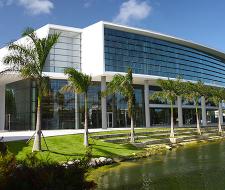 Apply with documents
Apply with documents -
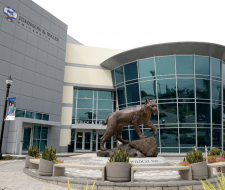 #69 in Regional Universities North
#69 in Regional Universities North USAMiami, FloridaCurrently watching: 5Apply with documents
USAMiami, FloridaCurrently watching: 5Apply with documents -
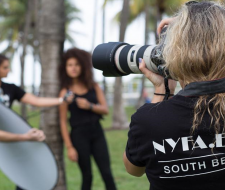 #48 Best Colleges for Film and Photography in America
#48 Best Colleges for Film and Photography in America USAMiami, FloridaCurrently watching: 6Apply with documents
USAMiami, FloridaCurrently watching: 6Apply with documents -
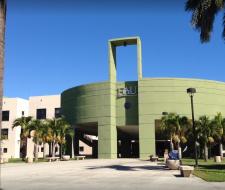 Apply with documents
Apply with documents -
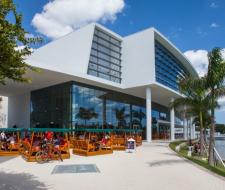 #55 out of 443 National Universities
#55 out of 443 National Universities USAMiami, FloridaCurrently watching: 6Apply with documents
USAMiami, FloridaCurrently watching: 6Apply with documents -
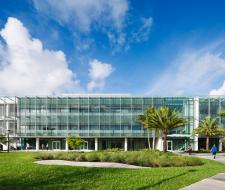 Apply with documents
Apply with documents -
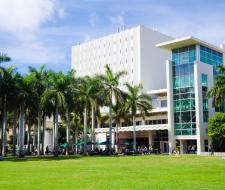 Apply with documents
Apply with documents
Alternative destinations
Education information
Secondary Schools in Miami. Guide for international students
In the United States, secondary school education spans from the 5th to the 8th grade, catering to children aged 10-14. Students in this age group have the opportunity to choose additional subjects, known as electives, based on their interests. However, the core curriculum mandated by the U.S. national education system includes subjects such as English, science, and social sciences. Common subjects studied by students in this phase encompass biology, chemistry, physics, history, geography, and more.
Type of programs in Schools in Miami
Schools in Miami offer an extensive array of elective subjects, allowing students to engage in activities like contributing to school newspapers, learning foreign languages, and mastering entrepreneurial skills, among others. Schools in Miami actively compete with one another, often by providing diverse and high-quality elective programs.
Gateway to Top American Universities
Secondary education in Miami plays a pivotal role in securing admissions to prestigious American universities. Studying at U.S. schools paves a direct path to top-tier institutions, with 90% of private school graduates successfully enrolling in esteemed universities, including those in the Ivy League. If you're contemplating attending an American school, this section provides valuable insights into programs, costs, and guidance on enrolling Russian students in American schools.
Exact Sciences and Foreign Languages
Secondary education in Miami excels in imparting knowledge in the exact sciences, including mathematics, physics, chemistry, and biology, as well as proficiency in foreign languages. Graduating from Miami schools essentially serves as a guarantee for admission to leading U.S. and global universities. Consequently, despite the relatively high cost of education, competition for private schools remains consistently fierce.
Personalized Learning Experience
Private schools in Miami offer a distinctive advantage: smaller class sizes, typically comprising 10-15 students per class. This intimate setting allows teachers to provide individualized attention to each student. Students are empowered to choose their subjects and create their personal schedules, fostering a dynamic learning environment where they encounter new peers in each subject.
Core and Elective Subjects
While students enjoy substantial freedom in selecting their subjects, certain subjects are mandatory, such as mathematics, natural and social sciences, computer literacy, and English. The remaining subjects are chosen based on individual interests.
Sports and Extracurriculars
Physical education is an integral part of the curriculum, but in high school, students focus on specific sports. Sporting achievements hold significant value in the U.S., impacting not only academic performance but also university admissions. Furthermore, U.S. schools offer ample opportunities for music, various arts, and recreational activities.
Advanced Placement (AP) Courses in Miami
High school students have the option to enroll in advanced courses called Advanced Placement (AP). These programs closely resemble a university's first-year curriculum, and successful completion can earn students university credits.
International Students' Transition to Schools in Miami
For international students, pursuing secondary education in Miami serves as a valuable means of adapting to the American education system. Miami schools prioritize not only academic performance but also an active approach to life. Classes and extracurricular activities extend from morning to evening, emphasizing the development of leadership skills, self-expression, effective communication, and time management. American schools provide a structured approach to acquiring knowledge, fostering independent thinking and research skills, thereby preparing graduates for real-world challenges.
Preparing for College in Miami
Upon completing their secondary education, students are required to take the SAT exam, which consists of two levels: SAT I, comprising verbal and mathematical sections, and SAT II, which tests knowledge in three subjects of the student's choice from a provided list. While most colleges require SAT I scores for admission, prestigious universities often prefer SAT II results.
Admission Requirements to Schools in Miami
Each American private school establishes its own admission requirements. In general, applicants must provide translated academic documents and demonstrate proficiency in English. Senior students may be required to take specialized subject exams, while younger children may undergo interviews. Typically, all assessments are conducted remotely. Following admission, students need to secure a student visa to pursue their education in Miami.
Secondary Schools in Miami. Cost and fees for international students
Secondary schools in Miami offer a diverse and dynamic educational experience for international students, but the cost and fees associated with attending these institutions can vary widely. Miami is home to a range of secondary schools, including public, private, and international schools, each with its own fee structure and tuition costs.
Public secondary schools in Miami typically charge minimal tuition fees for international students, as they are funded by the state or local government. However, international students may be required to pay additional fees, such as registration fees, textbook fees, and fees for extracurricular activities. These costs are relatively affordable compared to private and international schools.
Private secondary schools in Miami generally have higher tuition costs, and the fees can vary significantly from one institution to another. Tuition fees in private schools are often more expensive for international students compared to local residents. Additionally, private schools may have separate fees for application, technology, uniforms, and other miscellaneous expenses. It's essential for international students and their families to research and compare tuition and fees at different private schools to find the best fit for their budget.
International schools in Miami offer a global perspective and often provide instruction in multiple languages. The tuition fees for these schools are typically on the higher end, reflecting the premium education and resources they offer. International schools may also have additional fees for things like transportation, boarding, and international programs.

What advice do you have for applicants to American schools and why?
Take the time to study schools: seek information yourself and trust your educational agents, their experience and knowledge. Focus on those schools that fit your specific goals.
Ask questions! Attend job interviews, school trips, connect with staff and admissions.
Prepare well for exams - SSAT, ISEE or TOEFL - learn the rules for writing essays.
And, of course, discuss with your family the financial possibilities, the conditions of each school.
Go for it!
Learning programs-summary information
| Name | Meaning | Equivalent | Min. age | Duration, years |
Next stage | Cost |
|---|---|---|---|---|---|---|
| GCSE | General certificate of secondary education | secondary education (non-accomplished) | 14 | 1–2 | A-Levels | 15,000 USD+ |
| A-Levels | Advanced level | secondary education (accomplished) | 16 | 2 | University | 15,000 USD+ |
| BTEC | Business and Technology Education Board | secondary special education | 14 | 2–3 | University/ work | 15,000 USD+ |
| Oxbridge Preparation | Preparing for Oxford and Cambridge | secondary education (accomplished) | 17 | 1 | University | 15,000 USD+ |
| International Baccalaureate | International baccalaureate | secondary education (accomplished) | 16 | 2 | University | 18,000 USD+ |
| Foundation/ Pathway Year | Preparatory year | admission to the 1st year of university | 17 | 1 | University | 14,000 USD+ |
| NCUK | The Northern consortium | 2 year university | 17,5 | 1 | 2 year University of NCUK | 13,000 USD+ |
| Special Preparation (Medics/Math/Business) | Specialized training | - | 14 | optional | optional | 4,000 USD+ |
| Academic English | Academic English | Language school | 8 + | 6–12 months | School or University | 8,000 USD+ |
Advantages and disadvantages of English schools
| Advantages | Disadvantages |
|---|---|
| The opportunity to enter the best universities in England, USA, Canada, Switzerland, Europe, the world | Expensive |
| High quality of education and academic standards | Strong workload |
| Perfect English after graduation | The need to change the social environment; it takes time to adapt |
| Useful contacts | The difficulty of choosing the most suitable school for the child, requires a qualified specialist |
Top 21 boarding colleges in England 2024
| 1 | Cardiff Sixth Form College |
| 2 | National Mathematics and Science College |
| 3 | Abbey College Cambridge |
| 4 | d'Overbroeck's College |
| 5 | MPW London |
| 6 | CATS Cambridge |
| 7 | Kensington Park |
| 8 | DLD London |
| 9 | King's College St Michael’s |
| 10 | Bellerbys Cambridge |
| 11 | Chelsea Independent College |
| 12 | MPW Cambridge |
| 13 | Bellerbys Brighton |
| 14 | CATS London |
| 15 | St Clare's Oxford |
| 16 | Bishopstrow College |
| 17 | CATS Canterbury |
| 18 | Bellerbys London |
| 19 | Ealing Independent College |
| 20 | Cambridge Tutors College |
| 21 | Abbey Manchester |
Literature and references
- Miami Senior High School — Wiki
- Best High Schools in the Miami, FL Area
- Miami State High School — Wik
- The No. 5 best high school in the country is in Miami
- Miami Senior High School
- Miami high school’s connected campus elevates education and engagement
- Here are the best high schools in Florida, according to Stacker



